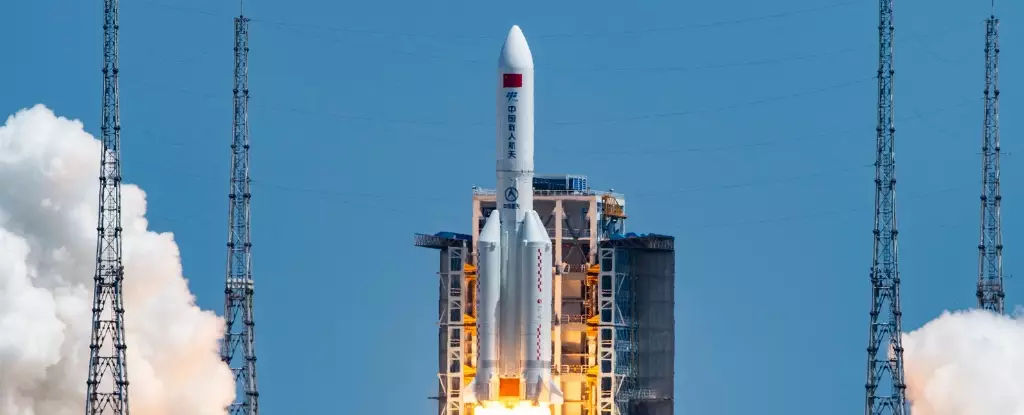In a move that aims to challenge SpaceX’s Starlink, a state-backed Chinese company, Shanghai Spacecom Satellite Technology, has launched its first 18 satellites. The company’s goal is to establish a massive orbital network, also known as the “Thousand Sails Constellation,” consisting of 15,000 Low Earth Orbit satellites by the year 2030. This initiative marks a significant step in China’s space exploration and technology advancement.
The Thousand Sails Constellation is just one of three major satellite networks planned by China. The other two projects are expected to bring a total of 23,000 Chinese satellites into orbit to provide internet services. These ambitious space projects have been motivated by the Chinese government’s drive to involve the private sector in achieving its science and technology objectives. By developing its own technologies and infrastructure, China aims to secure its industries against foreign influences and potential conflicts.
Government Backing and Private Investment
Shanghai Spacecom Satellite Technology, supported by the Shanghai municipal government, has also attracted funding from private investors and state-owned enterprises for its ambitious satellite network project. This collaboration between public and private sectors reflects China’s strategy to leverage domestic resources and expertise in the space industry. The country’s space industry is projected to reach a value of $321 billion by 2024, indicating significant growth and potential in this sector.
The launch of China’s satellite network has sparked comparisons with SpaceX’s Starlink, which currently operates around 6,000 satellites. Elon Musk’s ambitious plan for a network of 42,000 satellites faces competition from China’s Thousand Sails Constellation and other planned constellations. The race for dominance in space technology and satellite networks reflects the increasing competition among global powers for control over the satellite communications market.
The development of China’s satellite network, along with other planned constellations, is poised to revolutionize global internet connectivity and communication infrastructure. With the potential to provide internet services to remote areas and enhance digital communication capabilities, these satellite networks could reshape the landscape of technology and connectivity worldwide. As China expands its presence in space technology, the implications for international relations and competition in the space industry are significant.
China’s launch of its satellite network signals a new chapter in the race for space dominance and technological advancement. With ambitious plans to establish vast constellations of satellites in Low Earth Orbit, Chinese companies are challenging established players like SpaceX and reshaping the future of satellite communications. The interplay between government backing, private investment, and technological innovation in China’s space industry underscores the country’s strategic vision for achieving self-reliance and competitiveness on the global stage.



Leave a Reply